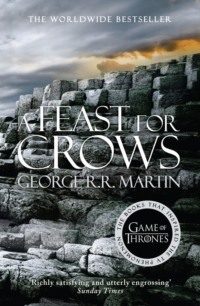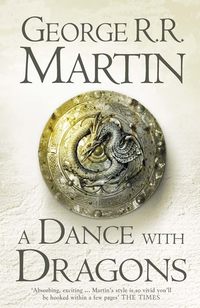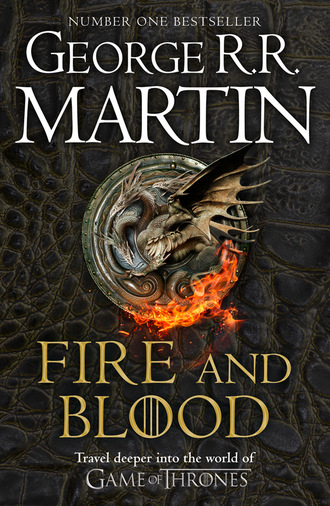
Полная версия
No such escape was possible for Rhaena Targaryen herself. Though she could change her name, dye her hair, and garb herself in a tavern wench’s roughspun or the robes of a septa, there was no disguising her dragon. Dreamfyre was a slender, pale blue she-dragon with silvery markings who had already produced two clutches of eggs, and Rhaena had been riding her since the age of twelve.
Dragons are not easily hidden. Instead the princess took them both as far from Maegor as she could, to Fair Isle, where Marq Farman granted her the hospitality of Faircastle, with its tall white towers rising high above the Sunset Sea. And there she rested, reading, praying, wondering how long she would be given before her uncle sent for her. Rhaena never doubted that he would, she said afterward; it was a question of when, not if.
The summons came sooner than she would have liked, though not as soon as she might have feared. There was no question of defiance. That would only bring the king down on Fair Isle with Balerion. Rhaena had grown fond of Lord Farman, and more than fond of his second son, Androw. She would not repay their kindness with fire and blood. She mounted Dreamfyre and flew to the Red Keep, where she learned that she must marry her uncle, her husband’s killer. And there as well Rhaena met her fellow brides, for this was to be a triple wedding.
Lady Jeyne of House Westerling had been married to Alyn Tarbeck, who had died with Prince Aegon in the Battle Beneath the Gods Eye. A few months later, she had given her late lord a posthumous son. Tall and slender, with lustrous brown hair, Lady Jeyne was being courted by a younger son of the Lord of Casterly Rock when Maegor sent for her, but this meant little and less to the king.
More troubling was the case of Lady Elinor of House Costayne, the wife of Ser Theo Bolling, a landed knight who had fought for the king in his last campaign against the Poor Fellows. Though only nineteen, Lady Elinor had already given Bolling three sons when the king’s eye fell upon her. The youngest boy was still at her breast when Ser Theo was arrested by the Kingsguard and charged with conspiring with Queen Alyssa to murder the king and place the boy Jaehaerys on the Iron Throne. Though Bolling protested his innocence, he was found guilty and beheaded the same day. King Maegor gave his widow seven days to mourn, in honor of the gods, then summoned her to tell her they would marry.
At the town of Stoney Sept, Septon Moon denounced King Maegor’s wedding plans, and hundreds of townfolk cheered wildly, but few others dared to raise their voices against His Grace. The High Septon took ship at Oldtown, sailing to King’s Landing to perform the marriage rites. On a warm spring day in the 47th year After the Conquest, Maegor Targaryen took three wives in the ward of the Red Keep. Though each of his new queens was garbed and cloaked in the colors of her father’s house, the people of King’s Landing called them “the Black Brides,” for all were widows.
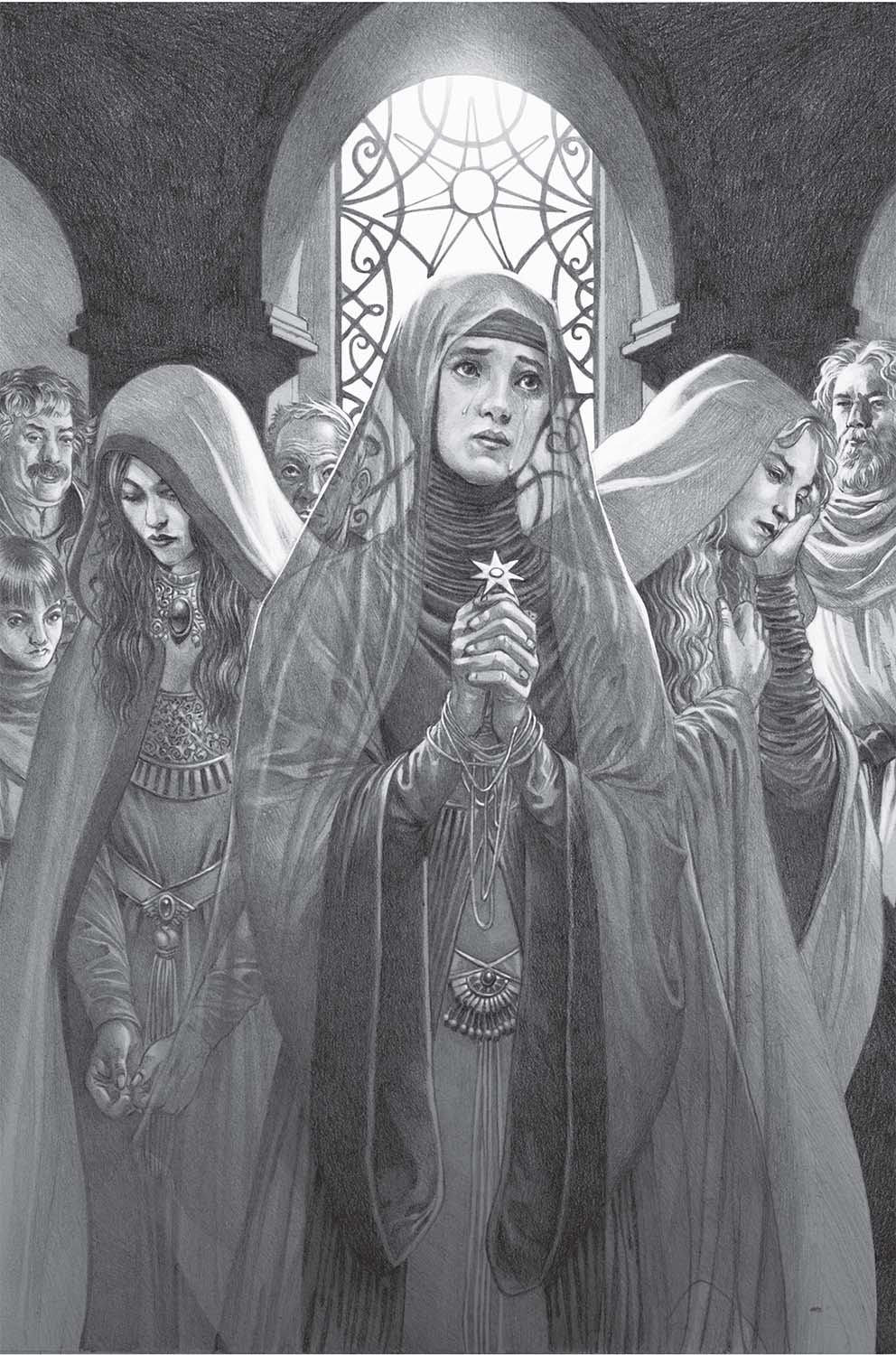
The presence of Lady Jeyne’s son and Lady Elinor’s three boys at the wedding ensured that they would play their parts in the ceremony, but there were many who expected some show of defiance from Princess Rhaena. Such hopes were quelled when Queen Tyanna appeared, escorting two young girls with silver hair and purple eyes, clad in the red and black of House Targaryen. “You were foolish to think you could hide them from me,” Tyanna told the princess. Rhaena bowed her head and spoke her vows in a voice as cold as ice.
Many queer and contradictory stories are told of the night that followed, and with the passage of so many years it is difficult to separate truth from legends. Did the three Black Brides share a single bed, as some claim? It seems unlikely. Did His Grace visit all three women during the night and consummate all three unions? Perhaps. Did Princess Rhaena attempt to kill the king with a dagger concealed beneath her pillows, as she later claimed? Did Elinor Costayne scratch the king’s back to bloody ribbons as they coupled? Did Jeyne Westerling drink the fertility potion that Queen Tyanna supposedly brought her, or throw it in the older woman’s face? Was such a potion ever mixed or offered? The first account of it does not appear until well into the reign of King Jaehaerys, twenty years after both women were dead.
This we know. In the aftermath of the wedding, Maegor declared Rhaena’s daughter Aerea his lawful heir “until such time as the gods grant me a son,” whilst sending her twin, Rhaella, to Oldtown to be raised as a septa. His nephew Jaehaerys, the rightful heir by all the laws of the Seven Kingdoms, was expressly disinherited in the same decree. Queen Jeyne’s son was confirmed as Lord of Tarbeck Hall, and sent to Casterly Rock to be raised as a ward of Lyman Lannister. Queen Elinor’s elder boys were similarly disposed of, one to the Eyrie, one to Highgarden. The queen’s youngest babe was turned over to a wet nurse, as the king found the queen’s nursing irksome.
Half a year later, Edwell Celtigar, the King’s Hand, announced that Queen Jeyne was with child. Hardly had her belly begun to swell when the king himself revealed that Queen Elinor was also pregnant. Maegor showered both women with gifts and honors, and granted new lands and offices to their fathers, brothers, and uncles, but his joy proved to be short-lived. Three moons before she was due, Queen Jeyne was brought to bed by a sudden onset of labor pains, and was delivered of a stillborn child as monstrous as the one Alys Harroway had birthed, a legless and armless creature possessed of both male and female genitalia. Nor did the mother long survive the child.
Maegor was cursed, men said. He had slain his nephew, made war against the Faith and the High Septon, defied the gods, committed murder and incest, adultery and rape. His privy parts were poisoned, his seed full of worms, the gods would never grant him a living son. Or so the whispers ran. Maegor himself settled on a different explanation, and sent Ser Owen Bush and Ser Maladon Moore to seize Queen Tyanna and deliver her to the dungeons. There the Pentoshi queen made a full confession, even as the king’s torturers readied their implements: she had poisoned Jeyne Westerling’s child in the womb, just as she had Alys Harroway’s. It would be the same with Elinor Costayne’s whelp, she promised.
It is said that the king slew her himself, cutting out her heart with Blackfyre and feeding it to his dogs. But even in death, Tyanna of the Tower had her revenge, for it came to pass just as she had promised. The moon turned and turned again, and in the black of night Queen Elinor too was delivered of a malformed and stillborn child, an eyeless boy born with rudimentary wings.
That was in the 48th year After the Conquest, the sixth year of King Maegor’s reign, and the last year of his life. No man in the Seven Kingdoms could doubt that the king was accursed now. What followers still remained to him began to melt away, evaporating like dew in the morning sun. Word reached King’s Landing that Ser Joffrey Doggett had been seen entering Riverrun, not as a captive but as a guest of Lord Tully. Septon Moon appeared once more, leading thousands of the Faithful on a march across the Reach to Oldtown, with the announced intent of bearding the Lickspittle in the Starry Sept to demand that he denounce “the Abomination on the Iron Throne,” and lift his ban on the military orders. When Lord Oakheart and Lord Rowan appeared before him with their levies, they came not to attack Moon, but to join him. Lord Celtigar resigned as King’s Hand, and returned to his seat on Claw Isle. Reports from the Dornish Marches suggested that the Dornishmen were gathering in the passes, preparing to invade the realm.
The worst blow came from Storm’s End. There on the shores of Shipbreaker Bay, Lord Rogar Baratheon proclaimed young Jaehaerys Targaryen to be the true and lawful king of the Andals, the Rhoynar, and the First Men, and Prince Jaehaerys named Lord Rogar Protector of the Realm and Hand of the King. The prince’s mother, Queen Alyssa, and his sister Alysanne stood beside him as Jaehaerys unsheathed Dark Sister and vowed to end the reign of his usurping uncle. A hundred banner lords and stormland knights cheered the proclamation. Prince Jaehaerys was fourteen years old when he claimed the throne; a handsome youth, skilled with lance and longbow, and a gifted rider. More, he rode a great bronze-and-tan beast called Vermithor, and his sister Alysanne, a maid of twelve, commanded her own dragon, Silverwing. “Maegor has only one dragon,” Lord Rogar told the stormlords. “Our prince has two.”
And soon three. When word reached the Red Keep that Jaehaerys was gathering his forces at Storm’s End, Rhaena Targaryen mounted Dreamfyre and flew to join him, abandoning the uncle she had been forced to wed. She took her daughter Aerea … and Blackfyre, stolen from the king’s own scabbard as he slept.
King Maegor’s response was sluggish and confused. He commanded the Grand Maester to send forth his ravens, summoning all his leal lords and bannermen to gather at King’s Landing, only to find that Benifer had taken ship for Pentos. Finding Princess Aerea gone, he sent a rider to Oldtown to demand the head of her twin sister, Rhaella, to punish their mother for her betrayal, but Lord Hightower imprisoned his messenger instead. Two of his Kingsguard vanished one night, to go over to Jaehaerys, and Ser Owen Bush was found dead outside a brothel, his member stuffed into his mouth.
Lord Velaryon of Driftmark was amongst the first to declare for Jaehaerys. As the Velaryons were the realm’s traditional admirals, Maegor woke to find he had lost the entire royal fleet. The Tyrells of Highgarden followed, with all the power of the Reach. The Hightowers of Oldtown, the Redwynes of the Arbor, the Lannisters of Casterly Rock, the Arryns of the Eyrie, the Royces of Runestone … one by one, they came out against the king.
In King’s Landing, a score of lesser lords gathered at Maegor’s command, amongst them Lord Darklyn of Duskendale, Lord Massey of Stonedance, Lord Towers of Harrenhal, Lord Staunton of Rook’s Rest, Lord Bar Emmon of Sharp Point, Lord Buckwell of the Antlers, the Lords Rosby, Stokeworth, Hayford, Harte, Byrch, Rollingford, Bywater, and Mallery. Yet they commanded scarce four thousand men amongst them all, and only one in ten of those were knights.
Maegor brought them together in the Red Keep one night to discuss his plan of battle. When they saw how few they were, and realized that no great lords were coming to join them, many lost heart, and Lord Hayford went so far as to urge His Grace to abdicate and take the black. His Grace ordered Hayford beheaded on the spot and continued the war council with his lordship’s head mounted on a lance behind the Iron Throne. All day the lords made plans, and late into the night. It was the hour of the wolf when at last Maegor allowed them to take their leave. The king remained behind, brooding on the Iron Throne as they departed. Lord Towers and Lord Rosby were the last to see His Grace.
Hours later, as dawn was breaking, the last of Maegor’s queens came seeking after him. Queen Elinor found him still upon the Iron Throne, pale and dead, his robes soaked through with blood. His arms had been slashed open from wrist to elbow on jagged barbs, and another blade had gone through his neck to emerge beneath his chin.
Many to this day believe it was the Iron Throne itself that killed him. Maegor was alive when Rosby and Towers left the throne room, they argue, and the guards at the doors swore that no one entered afterward, until Queen Elinor made her discovery. Some say it was the queen herself who forced him down onto those barbs and blades, to avenge the murder of her first husband. The Kingsguard might have done the deed, though that would have required them to act in concert, as there were two knights posted at each door. It might also have been a person or persons unknown, entering and leaving the throne room through some hidden passage. The Red Keep has its secrets, known only to the dead. It might also be that the king tasted despair in the dark watches of the night and took his own life, twisting the blades as needed and opening his veins to spare himself the defeat and disgrace that surely awaited him.
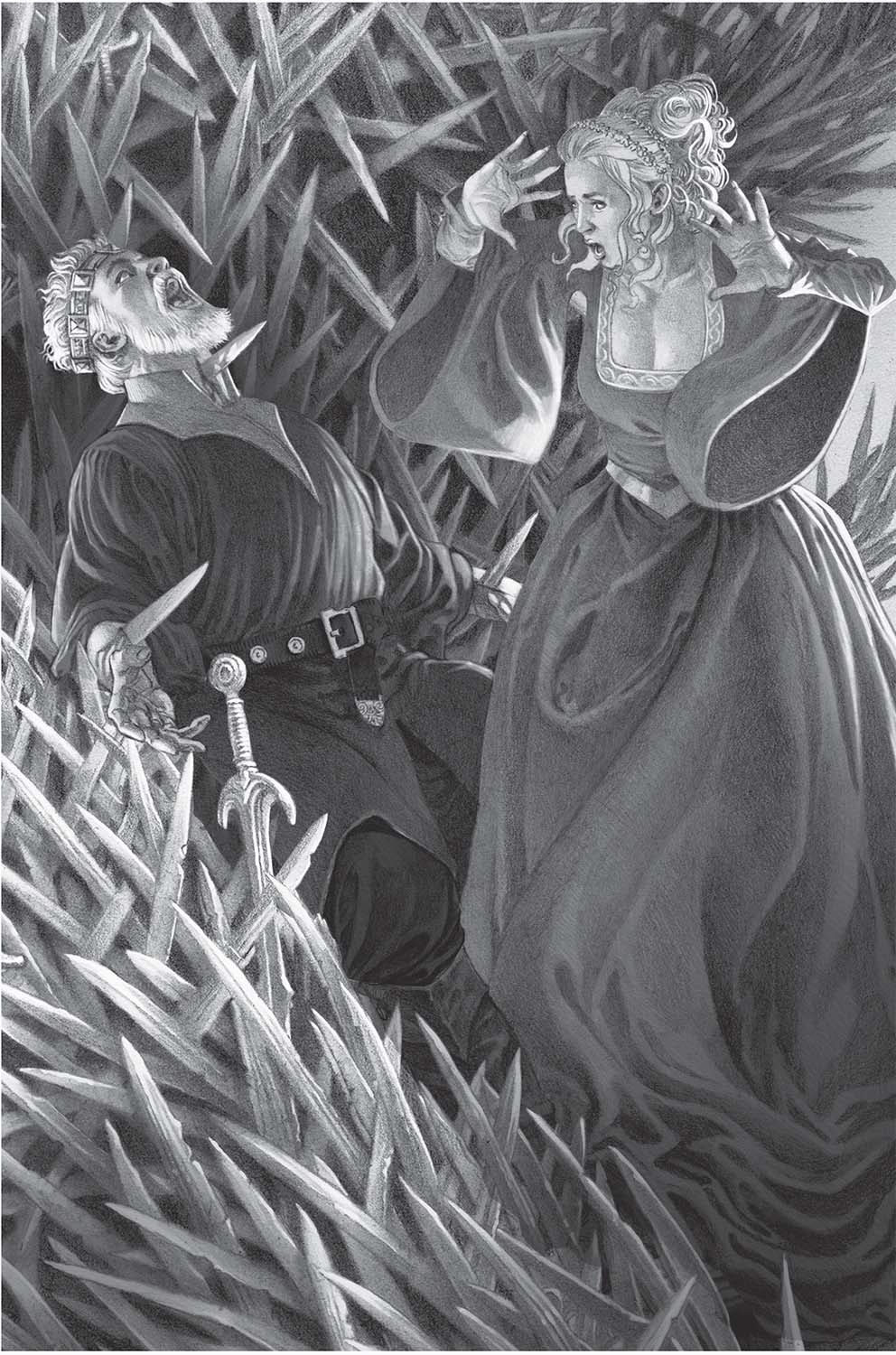
The reign of King Maegor I Targaryen, known to history and legend as Maegor the Cruel, lasted six years and sixty-six days. Upon his death his corpse was burned in the yard of the Red Keep, his ashes interred afterward on Dragonstone beside those of his mother. He died childless, and left no heir of his body.
Prince into King
The Ascension of Jaehaerys I
Jaehaerys I Targaryen ascended the Iron Throne in 48 AC at the age of fourteen and would rule the Seven Kingdoms for the next fifty-five years, until his death of natural causes in 103 AC. In the later years of his reign, and during the reign of his successor, he was called the Old King, for obvious reasons, but Jaehaerys was a young and vigorous man for far longer than he was an aged and feeble one, and more thoughtful scholars speak of him reverently as “the Conciliator.” Archmaester Umbert, writing a century later, famously declared that Aegon the Dragon and his sisters conquered the Seven Kingdoms (six of them, at least), but it was Jaehaerys the Conciliator who truly made them one.
His was no easy task, for his immediate predecessors had undone much of what the Conqueror had built, Aenys through weakness and indecision, Maegor with his bloodlust and cruelty. The realm that Jaehaerys inherited was impoverished, war-torn, lawless, and riven with division and mistrust, whilst the new king himself was a green boy with no experience of rule.
Even his claim to the Iron Throne was not wholly beyond question. Although Jaehaerys was the only surviving son of King Aenys I, his older brother Aegon had claimed the kingship before him. Aegon the Uncrowned had died at the Battle Beneath the Gods Eye whilst trying to unseat his uncle Maegor, but not before taking to wife his sister Rhaena and siring two daughters, the twins Aerea and Rhaella. If Maegor the Cruel were accounted only a usurper with no right to rule, as certain maesters argued, then Prince Aegon had been the true king, and the succession by rights should pass to his elder daughter, Aerea, not his younger brother.
The sex of the twins weighed against them, however, as did their age; the girls were but six at Maegor’s death. Furthermore, accounts left us by contemporaries suggest that Princess Aerea was a timid child when young, much given to tears and bed-wetting, whilst Rhaella, the bolder and more robust of the pair, was a novice serving at the Starry Sept and promised to the Faith. Neither seemed to have the makings of a queen; their own mother, Queen Rhaena, conceded as much when she agreed that the crown should go to her brother Jaehaerys rather than her daughters.
Some suggested that Rhaena herself might have the strongest claim to the crown, as the firstborn child of King Aenys and Queen Alyssa. There were even some who whispered that it was Queen Rhaena who had somehow contrived to free the realm from Maegor the Cruel, though by what means she might have arranged his death after fleeing King’s Landing on her dragon, Dreamfyre, has never been successfully established. Her sex told against her, however. “This is not Dorne,” Lord Rogar Baratheon said when the notion was put to him, “and Rhaena is not Nymeria.” Moreover, the twice-widowed queen had come to loathe King’s Landing and the court, and wished only to return to Fair Isle, where she had found a measure of peace before her uncle had made her one of his Black Brides.
Prince Jaehaerys was still a year and a half shy of manhood when he first ascended the Iron Throne. Thus it was determined that his mother, the Dowager Queen Alyssa, would act as regent for him, whilst Lord Rogar served as his Hand and the Protector of the Realm. Let it not be thought, however, that Jaehaerys was merely a figurehead. Right from the first, the boy king insisted upon having a voice in all decisions made in his name.
Even as the mortal remains of Maegor I Targaryen were consigned to a funeral pyre, his young successor faced his first crucial decision: how to deal with his uncle’s remaining supporters. By the time Maegor was found dead upon the Iron Throne, most of the great houses of the realm and many lesser lords had abandoned him … but most is not all. Many of those whose lands and castles were near King’s Landing and the crownlands had stood with Maegor until the very hour of his death, amongst them the Lords Rosby and Towers, the last men to see the king alive. Others who had rallied to his banners included the Lords Stokeworth, Massey, Harte, Bywater, Darklyn, Rollingford, Mallery, Bar Emmon, Byrch, Staunton, and Buckwell.
In the chaos that had followed the discovery of Maegor’s body, Lord Rosby drank a cup of hemlock to join his king in death. Buckwell and Rollingford took ship for Pentos, whilst most of the others fled to their own castles and strongholds. Only Darklyn and Staunton had the courage to remain with Lord Towers to yield up the Red Keep when Prince Jaehaerys and his sisters, Rhaena and Alysanne, descended upon the castle on their dragons. The court chronicles tell us that as the young prince slid from the back of Vermithor, these “three leal lords” bent their knees before him to lay their swords at his feet, hailing him as king.
“You come late to the feast,” Prince Jaehaerys reportedly told them, though in a mild tone, “and these same blades helped slay my brother Aegon beneath the Gods Eye.” At his command, the three were immediately put in chains, though some of the prince’s party called for them to be executed on the spot. In the black cells they were soon joined by the King’s Justice, the Lord Confessor, the Chief Gaoler, the Commander of the City Watch, and the four knights of the Kingsguard who had remained beside King Maegor.
A fortnight later, Lord Rogar Baratheon and Queen Alyssa arrived at King’s Landing with their host, and hundreds more were seized and imprisoned. Be they knights, squires, stewards, septons, or serving men, the charge against them was the same; they were accused of having aided and abetted Maegor Targaryen in usurping the Iron Throne and in all the crimes, cruelties, and misrule that followed. Not even women were exempt; those ladies of noble birth who had attended the Black Brides were arrested as well, together with a score of lowborn trulls named as Maegor’s whores.
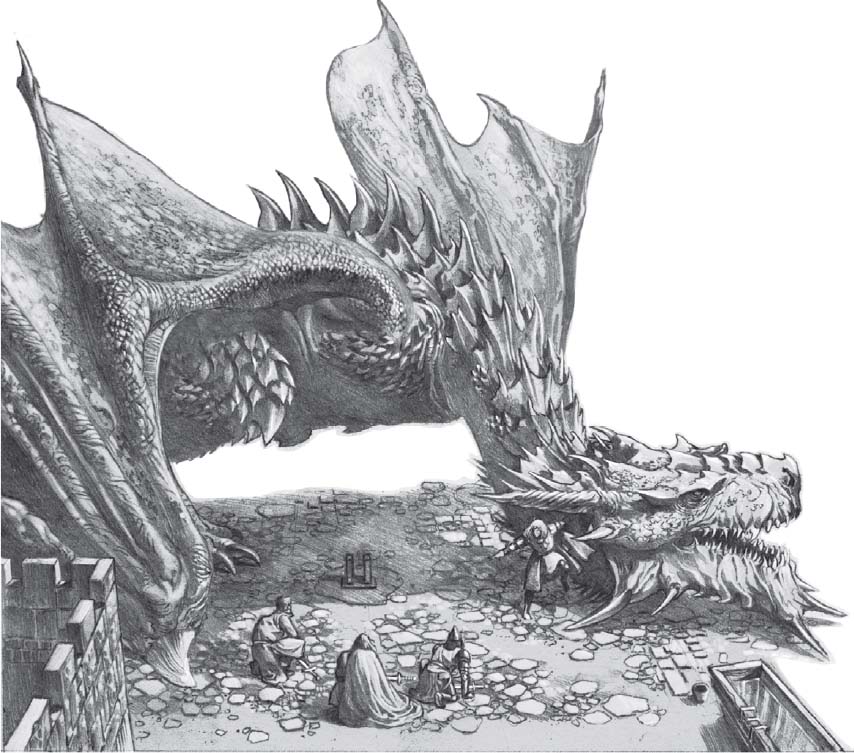
With the dungeons of the Red Keep full to bursting, the question arose as to what should be done with the prisoners. If Maegor were to be counted as usurper, then his entire reign was unlawful and those who had supported him were guilty of treason and must needs be put to death. Such was the course urged by Queen Alyssa. The Dowager Queen had lost two sons to Maegor’s cruelty and was of no mind to grant the men who had carried out his edicts even the dignity of a trial. “When my boy Viserys was tortured and slain, these men stood by silently and spoke no word of protest,” she said. “Why should we listen to them now?”
Against her fury stood Lord Rogar Baratheon, Hand of the King and Protector of the Realm. Whilst his lordship agreed that Maegor’s men were surely deserving of punishment, he pointed out that should their captives be executed, the usurper’s remaining loyalists would be disinclined to bend the knee. Lord Rogar would have no choice but to march on their castles one by one and winkle each man out of his stronghold with steel and fire. “It can be done, but at what cost?” he asked. “It would be a bloody business, one that might harden hearts against us.” Let Maegor’s men stand trial and confess their treason, the Protector urged. Those found guilty of the worst crimes could be put to death; for the remainder, let them tender hostages to ensure their future loyalty, and surrender some of their lands and castles.
The wisdom of Lord Rogar’s approach was plain to most of the young king’s other supporters, yet his views might not have prevailed had not Jaehaerys himself taken a hand. Though only ten-and-four, the boy king proved from the first that he would not be content to sit by meekly whilst others ruled in his name. With his maester, his sister Alysanne, and a handful of young knights by his side, Jaehaerys climbed the Iron Throne and summoned his lords to attend him. “There will be no trials, no torture, and no executions,” he announced to them. “The realm must see that I am not my uncle. I shall not begin my reign by bathing in blood. Some came to my banners early, some late. Let the rest come now.”
Jaehaerys as yet had neither been crowned nor anointed, and was still shy of his majority; his pronouncement therefore had no legal force, nor did he have the authority to overrule his council and regent. Yet such was the power of his words, and the determination he displayed as he sat looking down upon them all from the Iron Throne, that Lords Baratheon and Velaryon at once gave the prince their support, and the rest soon followed. Only his sister Rhaena dared say him nay. “They will cheer you as the crown is placed upon your head,” she said, “as once they cheered our uncle, and before him our father.”
In the end, the question rested with the regent … and whilst Queen Alyssa desired vengeance for her own sake, she was loath to go against her son’s wishes. “It would make him seem weak,” she is reported to have said to Lord Rogar, “and he must never seem weak. That was his father’s downfall.” And thus it was that most of Maegor’s men were spared.
In the days that followed, the dungeons of King’s Landing were largely emptied. After being given food and drink and clean raiment, the captives were escorted to the throne room seven at a time. There, before the eyes of gods and men, they renounced their allegiance to Maegor and did homage to his nephew Jaehaerys from their knees, whereupon the young king bade each man rise, granted him pardon, and restored his lands and titles. It must not be thought that the accused escaped without punishment, however. Lords and knights alike were compelled to send a son to court to serve the king and stand as hostages; from those who had no sons, a daughter was required. The wealthiest of Maegor’s lords surrendered certain lands as well, Towers, Darklyn, and Staunton amongst them. Others purchased their pardons with gold.
The royal clemency did not extend to all. Maegor’s headsman, gaolers, and confessors were all adjudged to be guilty of abetting Tyanna of the Tower in the torture and death of Prince Viserys, who had so briefly been Maegor’s heir and hostage. Their heads were delivered to Queen Alyssa, together with the hands they had dared raise against the blood of the dragon. Her Grace pronounced herself “well pleased” with the tokens.
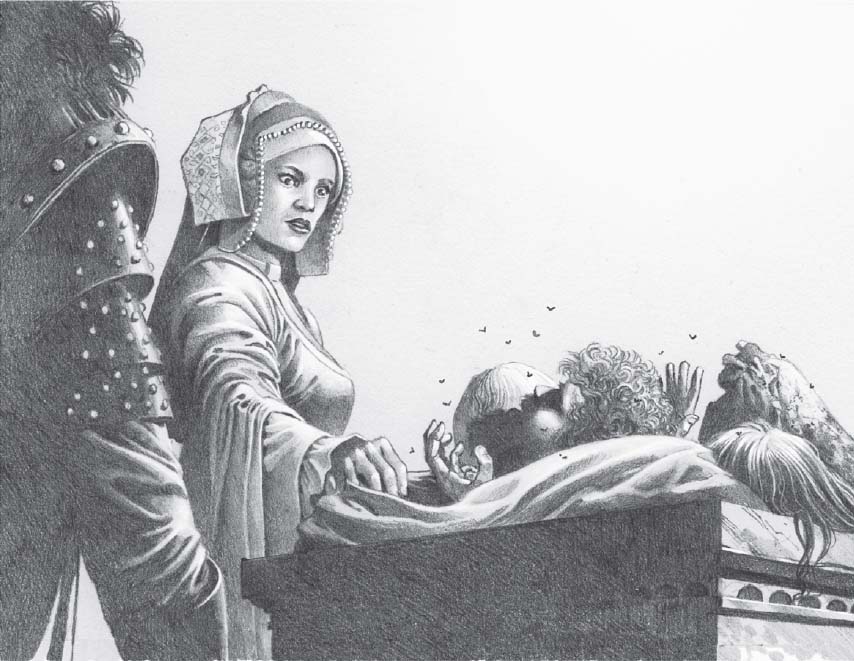
One other man also lost his head: Ser Maladon Moore, a Kingsguard knight, who was accused of having held Ceryse Hightower, Maegor’s first queen, whilst his Sworn Brother, Ser Owen Bush, removed her tongue, during which Her Grace’s struggles caused the blade to slip, bringing about her death. (Ser Maladon, it should be noted, insisted the whole tale was a fabrication, and said Queen Ceryse died of “shrewishness.” He did, however, admit to delivering Tyanna of the Tower to King Maegor’s hands and standing witness as he slew her, so he had a queen’s blood on his hands regardless.)
Five of Maegor’s Seven yet survived. Two of those, Ser Olyver Bracken and Ser Raymund Mallery, had played a part in the late king’s fall by turning their cloaks and going over to Jaehaerys, but the boy king observed rightly that in doing so they had broken their vows to defend the king’s life with their own. “I will have no oathbreakers at my court,” he proclaimed. All five Kingsguard were therefore sentenced to death … but at the urging of Princess Alysanne, it was agreed that they might be spared if they would exchange their white cloaks for black by joining the Night’s Watch. Four of the five accepted this clemency and departed for the Wall; along with Ser Olyver and Ser Raymund, the turncloaks, went Ser Jon Tollett and Ser Symond Crayne.



